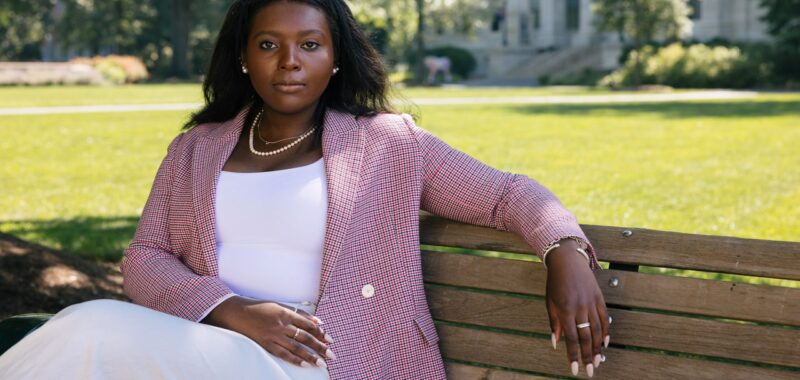“By the time I got to American, I did know that I was more conservative. I think partially it was [because] I went to an all-girls school in Virginia, and a lot of the girls there were more conservative leaning,” she says. At American, Porte says, she was the only woman on the board of the campus chapter of College Republicans. She was also a part of the Network of Enlightened Women, a group for conservative women on college campuses.
Porte appreciated the friend who had her back despite their divergent opinions and says she learned a lot during her four years at American because she was “exposed” to differing viewpoints. But in the end, her experiences on campus only strengthened her political convictions, and over her college years, Porte became “less tolerant” of what she saw as the shade directed at campus conservatives. “I’m never going to compromise my values because other people don’t agree with it.”
Many of the campus rifts boil down to a question of just how personal the political is, students say. That was the case for Kieghan Nangle, Claudia Nachega, and countless others I have met over the last two years.
“The length to which our generation embraces personal attacks and ad hominem attacks because of political views will make the polarization we’re seeing now worse,” says Cox.
What does this mean, then, for the election—and beyond? Though more young women still lean to the left, on the whole, this is a generation that appears less willing to accept traditional political labels, perhaps in part because of the stigma associated with both and a dissatisfaction for the division that partisan ideology often creates.
The data shows that when it comes to party affiliation, young women are less likely than older women to identify with either political party. According to the Glamour and YouGov survey, 29% of young women under 30 said they have no political lean at all—the largest percentage to say so of all age groups polled. And yet on college campuses ahead of November, some students have told me it feels as though they have to pick one party or the other, which they are reluctant to do. But when many stay silent, only the most vocal partisan viewpoints dominate the conversation, reflecting an uneven and unrealistic reality, with the median students’ perspectives nowhere to be found. It may seem that all of today’s college students exist in these silos, but this is truly not the case.
For Jahnavi Kirkire, a senior at the University of Maryland, College Park, and a registered independent who’s also involved with BridgeUSA, existing in that political no-man’s-land can be bizarre. “I’ve gotten that people feel uncomfortable when they hear other political opinions, which is a little disheartening,” she says. “It’s become more hush-hush sharing your opinions.”
She particularly dislikes the pressure to pick a side. “It makes politics feel very binary. Like there’s a yes or a no, and there’s a right and a wrong answer.” She also highlights the consequences of the constant political dialogue on campus. “I wish I could say I was allowed to be a student again. But there is that peer pressure of, ‘Oh, you’re not paying attention to this? You’re not doing anything?’ I feel that I’ve lost the ability to be a carefree student. Finding moments of joy is extraordinarily difficult when your campus feels like it’s internally ideologically warring with itself.”

